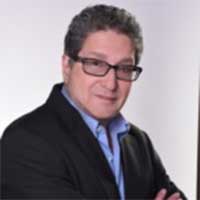Fidel Castro and organized crime

By: Pedro Corzo - 13/11/2025
Guest columnist.Share:
In a few days, another anniversary of the death of the man who destroyed the Republic of Cuba and has put the concept of nation in a state of agony in many of the sons of the largest of the Antilles will be commemorated.
The criminal actions that have taken place in Cuba over the last 66 years, many of them with serious repercussions in several countries, cannot be addressed without attributing sole responsibility to Fidel Castro.
If he wasn't the first, there's no doubt that the Cuban leader is at the forefront of criminals who linked crime with political action.
Castro was never an idealist, a man with a defined social thought, but a subject who aspired to power in an absolute way, without room for dissent, as occurs in outlaw groups.
Long before seizing power, Castro had been linked to criminal groups at the University of Havana and had participated in more than one murder. His inclinations were very clear, which is why he embraced violence to achieve his most nefarious goals.
According to people who knew him, his intellect was focused solely on controlling and manipulating those around him, while he sought to create events that would benefit him.
They claim that he always suffered from acute messianism and considered himself chosen to carry out transcendent and unique missions.
Former colleagues point out that he craved power at all costs and that his participation in the small but powerful mafia groups at the University of Havana was the means by which he climbed the ranks and gained prestige in an environment characterized by violence and the indifference of the vast student body, who only wanted to finish their studies.
Throughout history we find numerous politicians whose public actions were more lethal than the most prolific serial criminals, but Fidel Castro, unlike these, was a criminal before becoming a politician.
When Castro assumed control of the Cuban government on January 1, 1959, it was the first time the country had been ruled by a criminal turned politician. We had suffered leaders who were politicians with criminal appetites, but never before a criminal who wielded politics as a tool to govern the country.
The breakdown of all republican institutions, particularly Justice, Public Security and the Armed Forces, and the appointment of unconditional officials to head these departments who obeyed the orders of the "boss," not the previously established laws, leads to considering these individuals as part of the founding core of the criminal apparatus that, associated with international criminal organizations, has directed the destinies of Cuba and more than one country in the hemisphere in recent decades.
Castro resorted to organized violence to seize power and developed that successful strategy throughout the American hemisphere for decades, beginning in the very year of the insurrectionary victory.
The subversion disguised as ideological proposals for structural political change was yet another farce orchestrated by organized crime, which Fidel Castro promoted. Rather than engaging in military confrontations, the subversives resorted to kidnapping for ransom, ultimately becoming involved in international drug trafficking in pursuit of wealth and power.
The Cuba of the Castro brothers has a criminal record that includes terrorist acts, espionage, association with kidnappers and drug trafficking, to mention only the most relevant ones.
Castro's totalitarian regime has spied on everyone and everything without exception. While the United States has certainly been its primary target, its intelligence services, including the now-defunct Department of the Americas, the Ministry of Foreign Affairs, and the Institute of Friendship with the Peoples (ICAP), have operated in countless locations, as the system's resources derived from organized crime are always readily available for such activities.
Drug trafficking has been one of the most successful criminal acts of Castro's totalitarianism, so much so that there are two urban legends that are difficult to refute.
It is said that Ernesto “Che” Guevara and Fidel Castro agreed in the spring of 1961 that the best way to destroy the United States was by turning its youth into drug addicts, and the America Department, which Manuel Piñeiro directed, when it was short of money, organized drug distribution networks.
«The opinions published herein are the sole responsibility of its author».